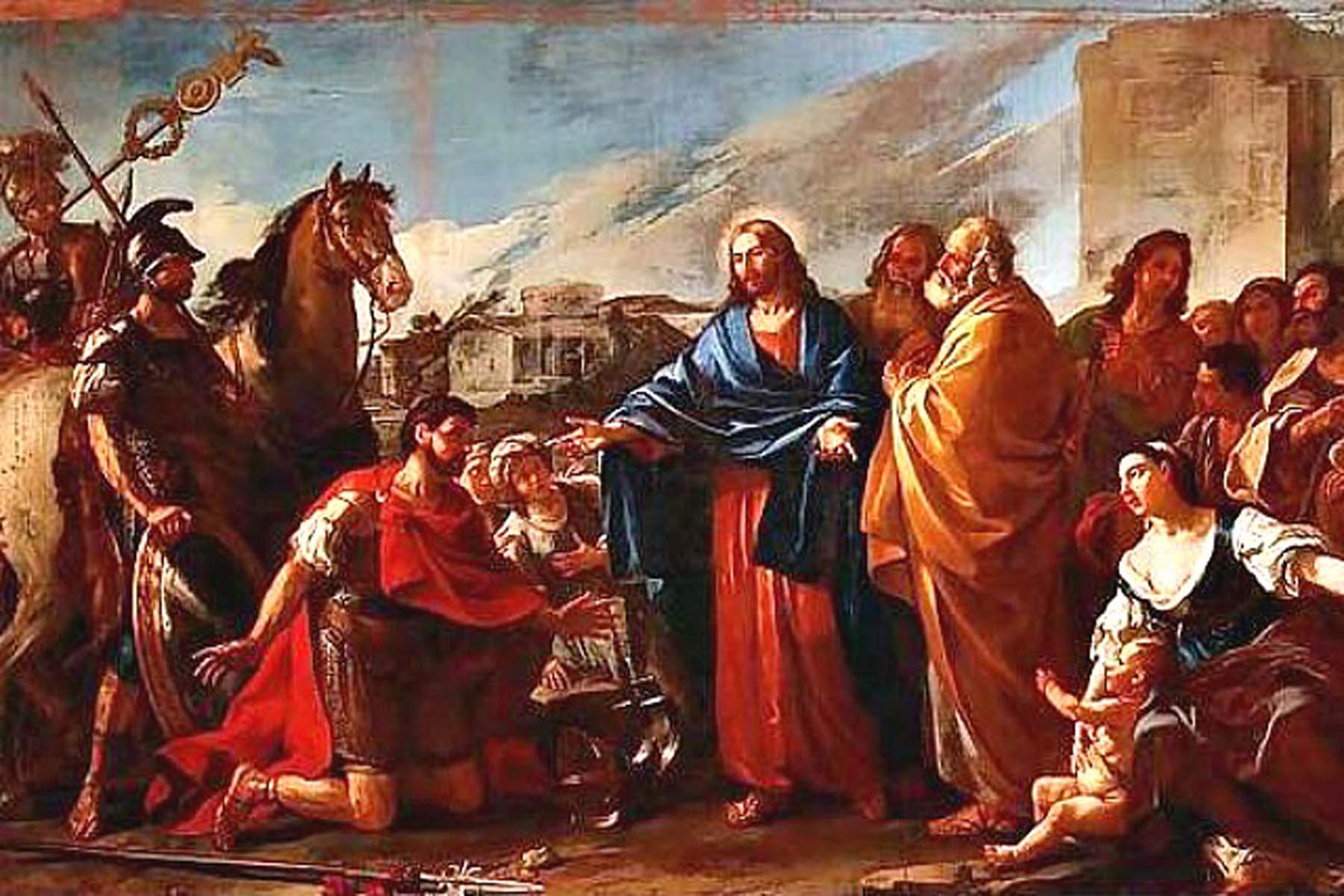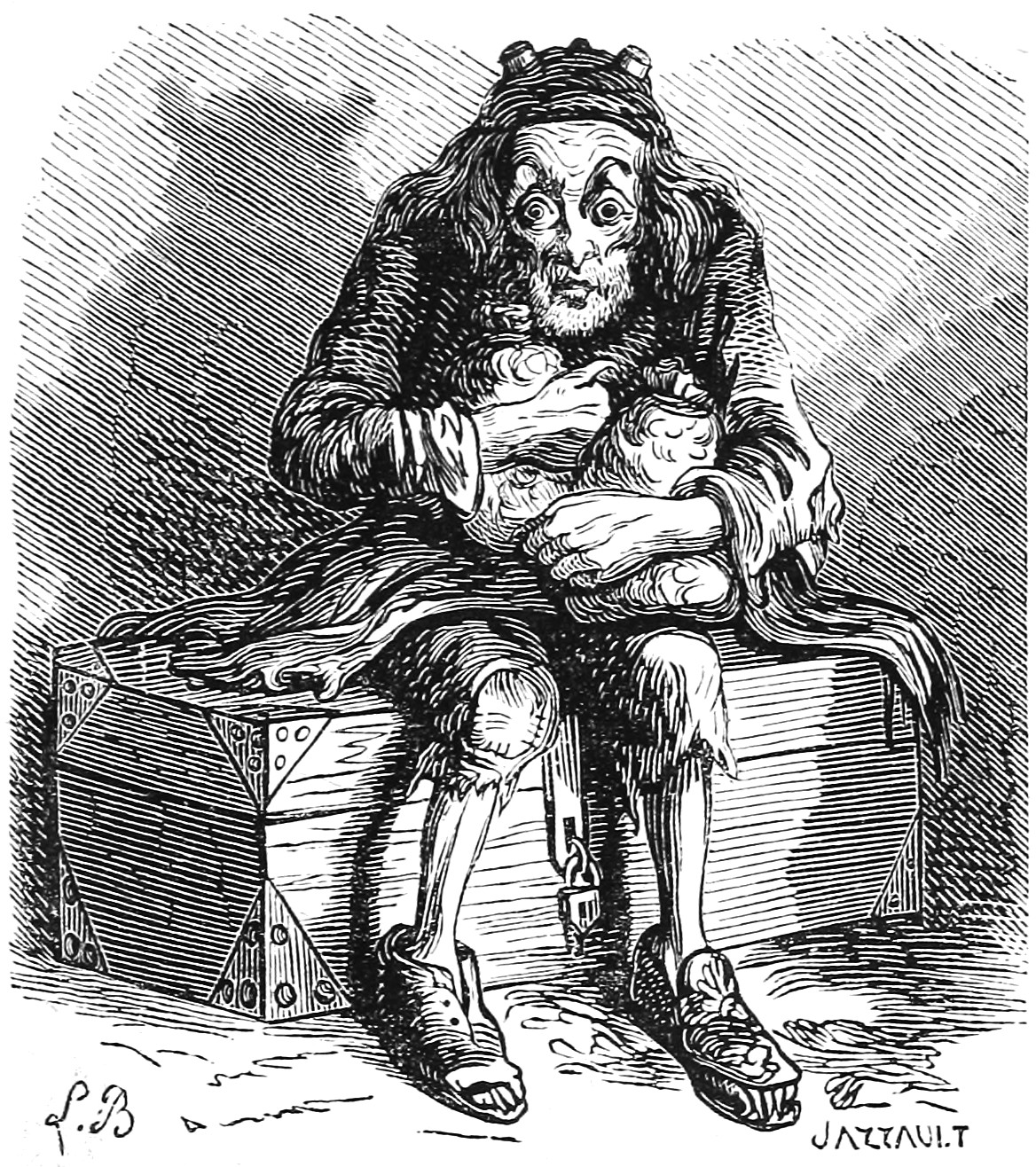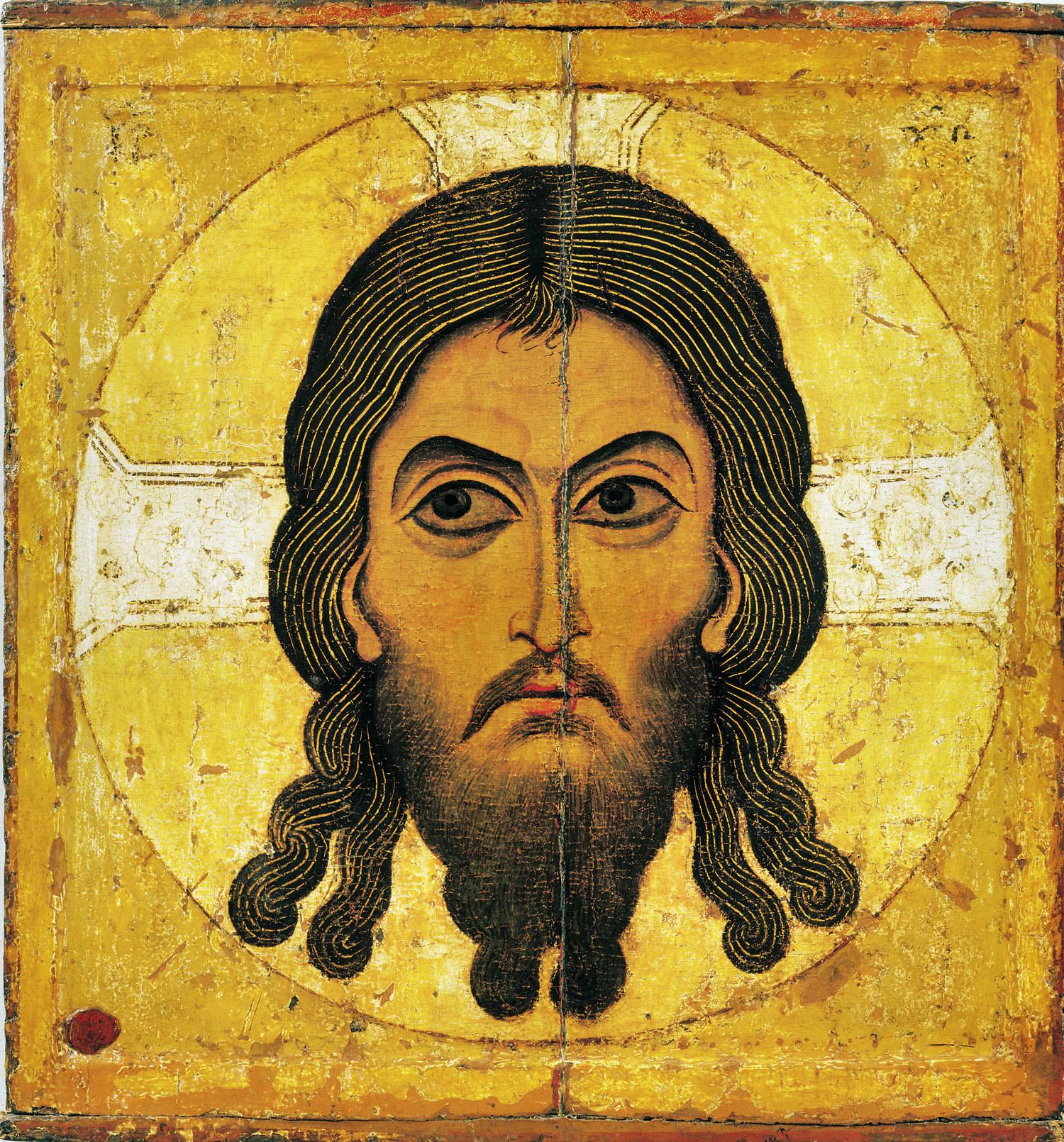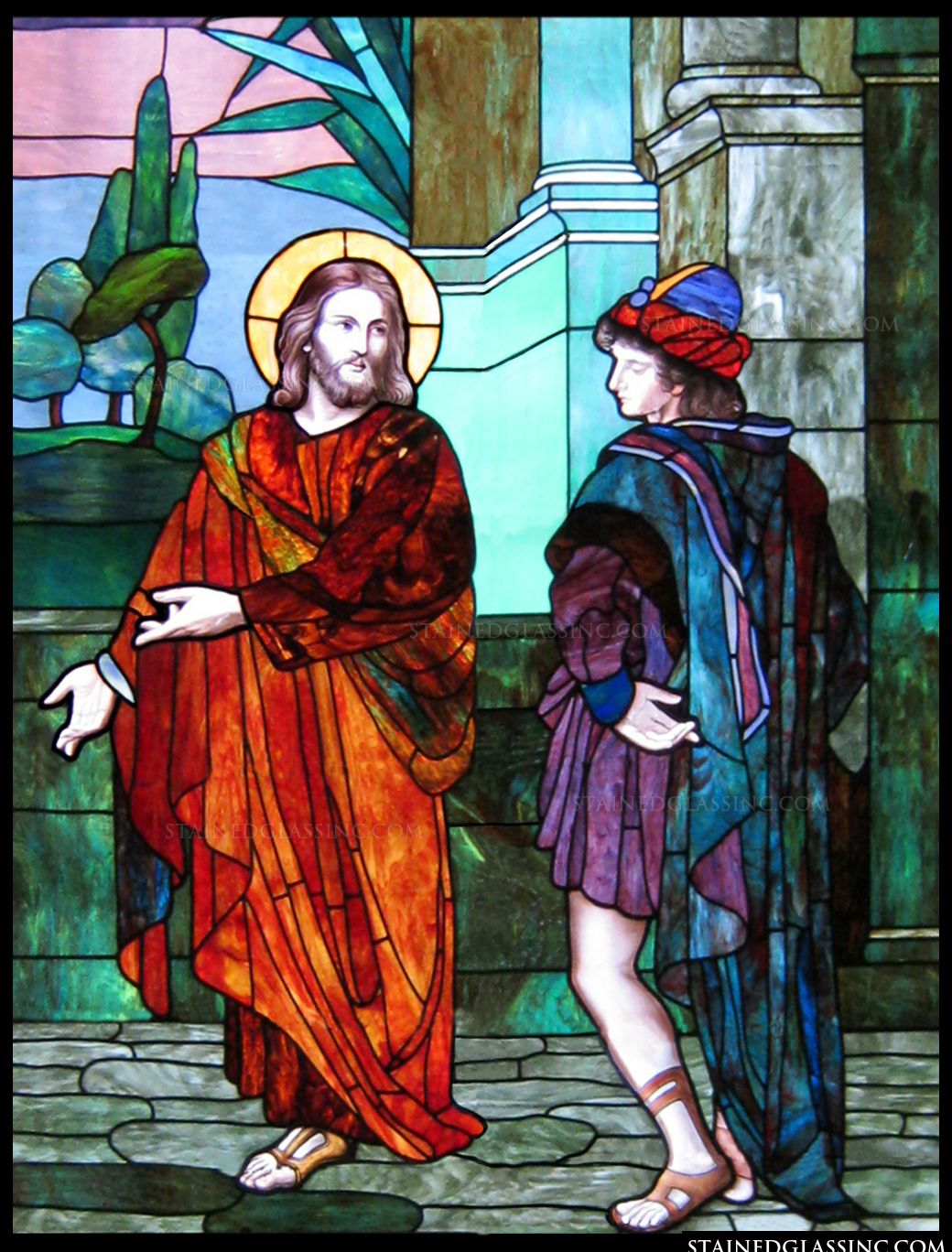
The nobleman said to Him, “Sir, come down before my child dies!” Jesus said to him, “Go your way; your son lives.”
John tells us at the end of his Gospel that the signs he recorded – three of them (Miracle at Cana; Healing of the Nobleman’s Son; Feeding of the 5,000) – were written so that we might believe that Jesus is the Christ, the Son of God, and that by believing this, we may have life in His name. Last devotion we contemplated how the three signs testify to the truth that Jesus is the Christ, the Son of God, and that we have life in His name.
We paired up the healing of the nobleman’s son with the “life in His name” bit and related it to baptism. The healing of the nobleman’s son not only shows us that there is life in Jesus, but more importantly, it shows us how it is true for us.
On those terms, how wonderful Jesus didn’t dutifully follow the nobleman home like an obedient puppy, doing the nobleman’s bidding. All that would show us is that Jesus is a magic man whose touch has magical powers. This is what’s going on, somewhat, in Jesus’ slight rebuke about “unless you people see signs and wonders.” Jesus isn’t questioning the man’s need for a miracle to heal his son – Jesus answers that prayer – but might be pushing back on the man’s insistence that He go down with him back to Capernaum. Jesus knew He was only one man, localized in one place, and if His mission were to continue on at all, it would require Him returning to the Father and sending out the Holy Spirit to “spread out” His presence mystically, so He begins to teach about that.
The sign is, “Go your way; your son lives” and this word carries over distance and effects its authority as if Jesus were next to the son. That’s the sign. And St. John says this sign was recorded so that we might believe Jesus is the Christ, the Son of God, and have life in His name.
The “life in His name” bit pairs up nicely with the “Go your way; your son lives.” If the “life in His name” goes hand in hand with baptism, which it does, then the baptismal life bestowed in the name of the Father and of the Son and of the Holy Spirit is no different than Jesus’ words, “Your son lives.”
Why belabor this point? Because thus far we’ve not really reflected on the intense emotion going on in this Gospel. Thankfully not every parent has had to experience the grief of a child dying, but many have. I remember comforting an elderly widow in her 90s after her daughter in her 70s passed away, and she said her sadness was just as great as if her daughter died when she was young. What comfort is there for a parent when a child dies?
Had Jesus walked down with the man to Capernaum and healed the son, the only conclusion would have been, “Lucky him.” Jesus would have said something like, “Young man, I say to you, arise.” And that would have been great for the young man and his family. But what about us?
Thankfully, Jesus has us in mind as He deals with this man. Jesus had us in mind when He said, “Blessed are those who believe without seeing,” and He really wants to develop this point. “Your son lives” is transferable. It’s a statement of cosmic fact for all who believe without seeing. “Your son lives” is “life in His name.” “Your son lives” is the result of baptism and faith in His name.
The man believed Jesus’s words, and there was that period some time on the 16 mile way back to Capernaum when he believed, but did not see yet. All he had was faith. Only when the people met him and told him his son lived did know for sure.
We too are given that faith. “Your son lives.” That is absolutely true. The one who believes in Jesus will not see or taste death. As Abraham lived to see Jesus’ day, so do them that believe in Him. So, through the sadness of seeing no proof of life in our children – something the nobleman shared the first part of his walk back – we still have faith that “Your son lives.” That is absolutely true.
That being the case, how else is there to live but by faith? Christ’s word creates worlds, and in this time of faith, that world is a world by faith, a world in which all the company of heaven live, though they have died, a world we join in the heavenly wedding banquet, in the heavenly Cana.








